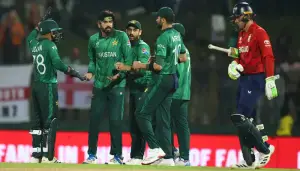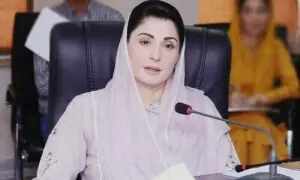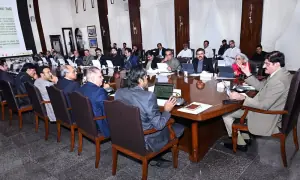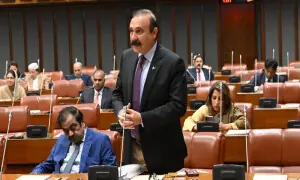What are criteria for nominating Pakistan’s next chief justice?
2 min readGovernment’s legal adviser Barrister Aqeel Malik has shared the criteria on which the Special Parliamentary Committee will nominate the next chief justice of Pakistan following President Asif Ali Zardari’s assent to the 26th Constitutional Amendment.
The government narrowly passed constitutional amendments on Monday giving lawmakers more power to appoint top judges, who have issued a series of recent decisions favouring opposition chief Imran Khan.
Since the February elections marred by rigging allegations, relations have soured between Islamabad and the top courts as rulings litigating results have backed the party of jailed ex-prime minister Khan.
Under the judicial reforms passed during an early morning session of parliament, Pakistan’s chief justice will now be selected by a parliamentary committee and have a fixed term of three years.
The amendments come just days before Supreme Court Chief Justice Qazi Faez Isa is due to retire.
Under the previous law, he would have been automatically replaced by the next most senior judge – currently, Mansoor Ali Shah, who has consistently issued verdicts deemed favourable to Khan and his party.
“It will be a parliamentary committee having representation of all political parties and officially reasons will be given for the nomination,” Aqeel said while appearing on News Insight with Amir Zia which was aired on Aaj News on Monday.
“It is not like appointing a judge of your own choice,” he said and mentioned the following points to be considered while evaluating the three-senior most judges of the Supreme Court.
-
Seniority
-
Fitness
-
Legal acumen
-
Legal wisdom
-
Credentials
-
Academic background
-
Otherwise, evaluating judges’ experience if they have been in any provincial court
“These reasons will have to be described in writing. It has to be deduced to tell whom we are considering and whom not,” Aqeel.
At one point, he said that the parliamentary committee formation for nominating judges was also part of the PTI’s manifesto. The PML-N leader added that it was a wrong perception that the government was controlling the judiciary.
“We have regained our right back.”
He clarified that there was only one Supreme Court and it “was not like that two judges have been put against each other.”
For the latest news, follow us on Twitter @Aaj_Urdu. We are also on Facebook, Instagram and YouTube.























Comments are closed on this story.